![]()
January 2012
This study updates and supplements the ITIC’s June 2011 study of the Muslim Brotherhood. It examines the Muslim Brotherhood in Egypt and other Arab countries in the wake of the past year’s regional uprisings. It deals with the nature of the movement in each country, its relations with the various regimes and evaluates its chances of exploiting regional unrest to its own ends. It also examines the Muslim Brotherhood’s branches in Western European countries and the implications of its activity for both internal European affairs and the Palestinian-Israeli conflict.

The emblem of the Movement of Society for Peace (MSP), a moderate Islamic party affiliated with the Muslim Brotherhood which promotes Islamic values in Algerian society (http://fr.hmsalgeria.net)
The Muslim Brotherhood apparently began its operations in Algeria in the 1940s. Between 1953 and 1954 its leader was Sheikh Ahmed Sahnoun, considered the undisputed spiritual father of the Algerian Islamic movement. Between 1954 and 1962, as Algeria fought for its independence, the movement opposed the French occupation and called for jihad against it. However, the Muslim Brotherhood played a relatively minor role compared to the FLN, Algeria’s national liberation movement, which spearheaded the struggle and went on to win power after independence was gained.
After a multi-party system was established in Algeria in the early 1990s, the local Muslim Brotherhood branch formed the Movement of Society for Peace (MSP).[23] It was a moderate Islamic party which agreed to act according to the rules imposed by the regime and was integrated into the government (as part of a cross-party alliance which supported President Bouteflika). While the MSP was not officially defined as a branch of the Muslim Brotherhood in Algeria, the two were definitely affiliated.[24] Mahfoud Nahnah, considered a powerful, charismatic figure, led the MSP until his death in 2003. Nahnah was a presidential candidate in 1995 and came in second with about 25% of the votes. He was succeeded by Bouguerra Soltani, seen as being weaker than his predecessor.
The Muslim Brotherhood in Algeria did not join the Islamic Salvation Front (FIS). The FIS was established in 1989 and won 54% of the votes in the first round of the 1990 parliamentary elections. Concerned about the possibility of radical Islam attaining power, the army changed the voting system in 1991 to prevent the FIS from winning the second round . The FIS was banned in 1992.
After the election results were voided, Algeria was plagued by a decade of civil war that claimed nearly 100,000 lives. Brutal massacres were committed by Islamic elements affiliated with the FIS, particularly the Islamic Salvation Army (AIS, considered the military wing of the FIS) and an Islamic organization known as the Armed Islamic Group (GIA).[25] In 2002 the GIA was persecuted into virtual extinction by the Algerian authorities, while AIS members were pardoned by President Bouteflika in 1992.
Thus the Muslim Brotherhood in Algeria remained a law-abiding organization which espouses democracy and national reconciliation and is represented in the government and the parliament. In 2000 the MSP, under the leadership of Bouguerra Soltani, was part of President Bouteflika’s coalition. The party split in 2009 over internal differences between Bouguerra Soltani’s faction and the one headed by Nahnah’s ally Abdelmadjid Menasra, who established a party called the Movement for Preaching and Change (Harakat al-Da’wah wal-Taghyir). The split and the personal rivalry between Soltani and Menasra weakened the Muslim Brotherhood in Algeria.
The Muslim Brotherhood in Algeria was strongly represented on board the Mavi Marmara. Most of the 32 members of the Algerian delegation belonged to the MSP. The delegation was headed by physician and MSP activist Abderrazak Makri.
![]()
Read the other sections here:
1. The Muslim Brotherhood in the Arab World and Islamic Communities in Western Europe: an overview
2. The Muslim Brotherhood in Egypt
3. The Muslim Brotherhood in Syria
4. The Muslim Brotherhood in Jordan
5. The Muslim Brotherhood in Algeria
6. The Muslim Brotherhood in Sudan
7. The Muslim Brotherhood in Saudi Arabia
8. The Muslim Brotherhood in The United Arab Emirates
9. The Muslim Brotherhood in Lebanon
10. The Muslim Brotherhood in Morocco
11. The Muslim Brotherhood in Tunisia
12. The Muslim Brotherhood in Europe
![]()
Notes:
[23] In Arabic: Harakat Mujtama‘ al-Silm (HMS).
[24] Many reports about the MSP consider it to be affiliated with the Muslim Brotherhood. Such reports include articles published on websites affiliated with the global Muslim Brotherhood movement (e.g., www.tsa-algerie.com).
[25] Groupe Islamique Armée



 RSS
RSS


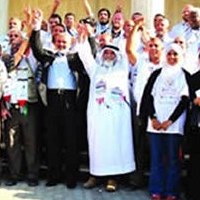
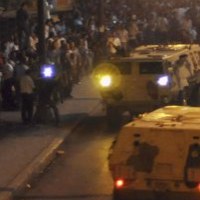
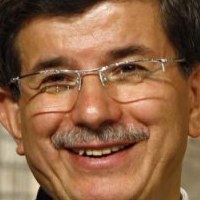
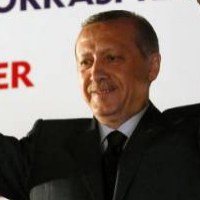
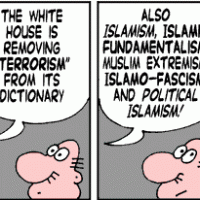




[…] 5. The Muslim Brotherhood in Algeria […]
[…] 5. The Muslim Brotherhood in Algeria […]
[…] 5. The Muslim Brotherhood in Algeria […]
[…] 5. The Muslim Brotherhood in Algeria […]
[…] 5. The Muslim Brotherhood in Algeria […]